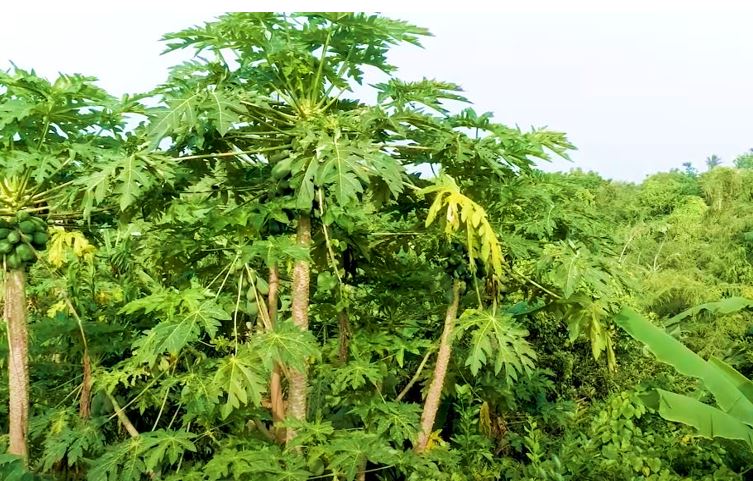
Are you interested in starting your own organic farming business? If so, you are in for a treat! In this blog post, we will discuss everything that you need to know about starting an organic farming . We will cover topics such as choosing the right location, getting started with planting and harvesting, and marketing your products. So whether you are a beginner or an experienced farmer, this guide has something for everyone!
What is organic farming:
Organic farming is a type of agriculture that focuses on producing food more naturally. This means using fewer pesticides and chemicals, and instead relying on things like crop rotation and composting to keep plants healthy. There are many benefits to organic farming, including improved soil health, reduced water pollution, and increased biodiversity.
However, organic farming can also be more labor-intensive and expensive than traditional farming methods. This is why it is important to do your research before starting an organic farming business.
Choosing the right location:
The first step to starting any business is choosing the right location. This is especially important for organic farmers, as you will need access to land that is suitable for growing crops. When choosing a location for your farm, there are a few things to keep in mind.
- First, you will need to make sure that the land you are choosing is zoned for agricultural use. This means that it should not be located in an area that is earmarked for future development, as this could impact your ability to farm in the future.
- Second, you will need to consider the climate and weather patterns in the area. Organic farming relies heavily on things like sunlight and rain, so you will need to make sure that your farm is located in an area where these conditions are favorable.
- Finally, you will need to think about the proximity of your farm to markets where you can sell your products.
What does it take to start an organic farming business:
Starting an organic farming business can be a big investment, both in terms of time and money.
First, you will need to purchase or lease land that is suitable for growing crops. This land will need to be zoned for agricultural use, and it should have favorable conditions for things like sunlight and rain.
Next, you will need to invest in equipment and supplies, such as tractors, planting and harvesting equipment, and organic fertilizers. Finally, you will need to factor in the cost of labor. If you are not able to do all the work yourself, you will need to hire employees to help with tasks like planting and harvesting.
Despite the initial investment required, starting an organic farming business can be a very rewarding experience. Not only will you be able to provide healthy and sustainable food for your community, but you will also be able to enjoy the satisfaction of being your own boss!
Grow organic crops :
There are a few things to keep in mind if you want to grow organic crops. First, you will need to use organic seeds, which can be purchased from several sources. Next, you will need to follow organic farming practices, such as using crop rotation and composting. Finally, you will need to get your farm certified by an organic certification agency. This will involve completing an application and passing an inspection.
Marketing :
There are a few different ways to market your organic farm. One option is to sell your products at local farmers’ markets. This can be a great way to get in front of potential customers and build relationships with the people who support your business. Finally, you can distribute your products to local businesses, such as grocery stores or restaurants. This can help increase your visibility and reach new customers.
Sell Organic Products Online:
If you want to reach a wider audience with your organic products, selling online is a great option. There are a few different ways to do this. One option is to create a website or online store for your business. This will give you a platform to showcase your products and provide information about your farm.
You can also sell your products through existing online marketplaces, such as Etsy or Amazon. This can be a great way to get started selling online without having to create your own platform. Finally, you can sell your products through social media platforms, such as Facebook or Instagram. This can be a quick and easy way to reach potential customers where they are already spending time.
Tips for success if you’re starting an organic farming business:
There are a few things to keep in mind if you want to be successful as an organic farmer. First, you will need to create a business plan. This should include your goals and objectives, as well as a marketing strategy. Next, you will need to research the organic farming industry and learn about best practices. Finally, you will need to build strong relationships with your customers. By providing them with quality products and excellent customer service, you can create a loyal base of supporters for your business.
Challenges you might face when starting an organic farming business:
One of the biggest challenges you might face when starting an organic farming business is the initial investment. Organic farming requires specialized equipment and supplies, which can be costly. You will also need to factor in the cost of labor.
Conclusion
Organic farming is a labor-intensive process, and it can take a while to see results. However, by being patient and persistent, you can overcome these challenges and build a successful organic farming business!
FAQ
Q: Do I need a license to start an organic farm?
A: In the United States, there is no federal certification required to market your products as organic. However, some states do have their own certification programs. You will need to research the requirements in your state.
Q: How much land do I need to start an organic farm?
A: The amount of land you need will depend on the type of organic farming you want to do. For example, if you want to raise livestock, you will need more land than if you just want to grow crops. You will also need to factor in the amount of equipment and supplies you need.
Q: How much money do I need to start an organic farm?
A: The amount of money you need to start an organic farm will depend on the size and scope of your operation. You will need to factor in the cost of land, labor, equipment, and supplies. You should also have some money set aside for marketing and advertising.
Q: What are some challenges I might face when starting an organic farm?
A: Some challenges you might face when starting an organic farm include the initial investment, the amount of time and effort required, and finding customers. However, by being patient and persistent, you can overcome these challenges and build a successful business!


